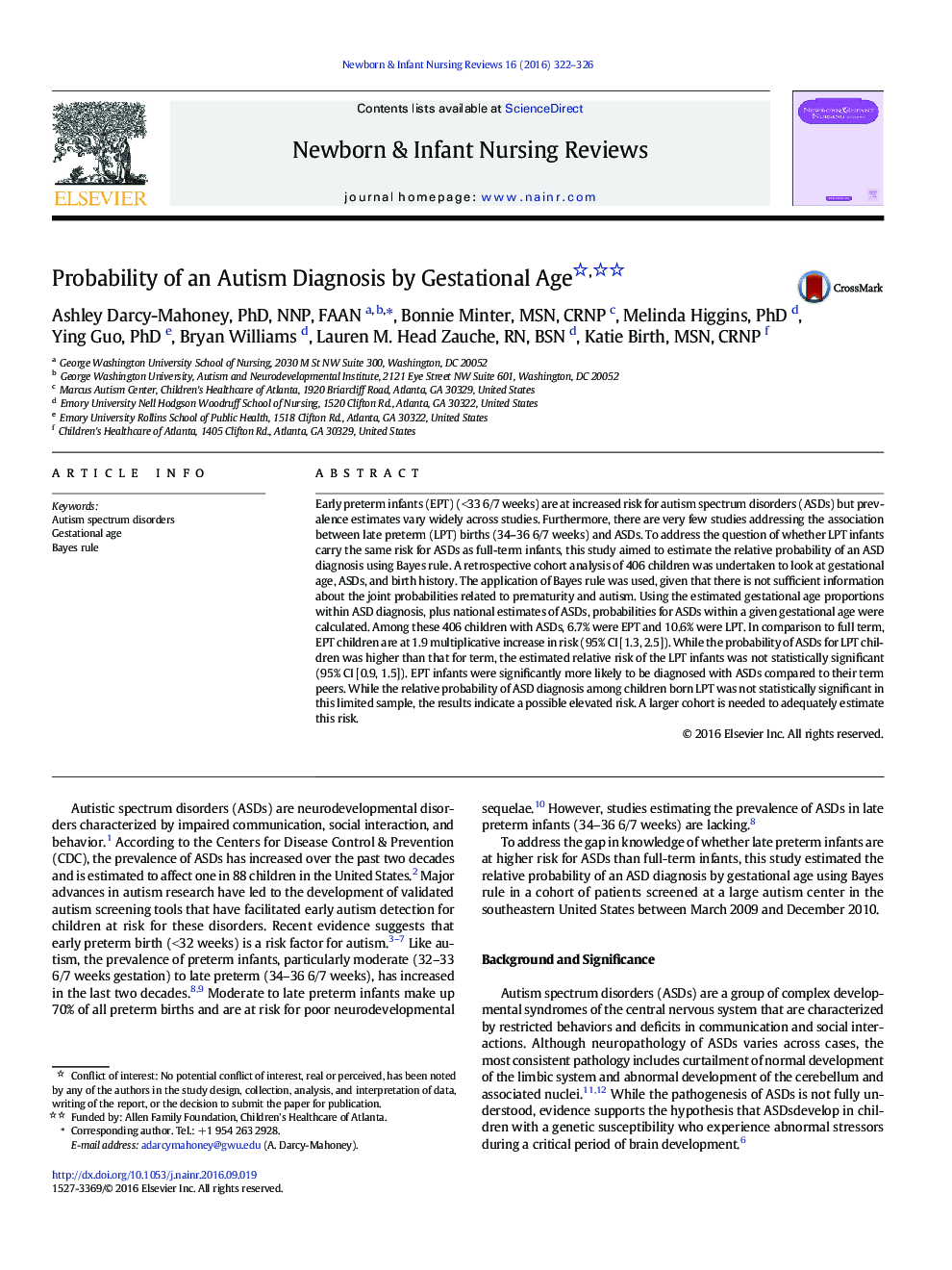| Article ID | Journal | Published Year | Pages | File Type |
|---|---|---|---|---|
| 5870961 | Newborn and Infant Nursing Reviews | 2016 | 5 Pages |
Early preterm infants (EPT) (<33 6/7Â weeks) are at increased risk for autism spectrum disorders (ASDs) but prevalence estimates vary widely across studies. Furthermore, there are very few studies addressing the association between late preterm (LPT) births (34-36 6/7Â weeks) and ASDs. To address the question of whether LPT infants carry the same risk for ASDs as full-term infants, this study aimed to estimate the relative probability of an ASD diagnosis using Bayes rule. A retrospective cohort analysis of 406 children was undertaken to look at gestational age, ASDs, and birth history. The application of Bayes rule was used, given that there is not sufficient information about the joint probabilities related to prematurity and autism. Using the estimated gestational age proportions within ASD diagnosis, plus national estimates of ASDs, probabilities for ASDs within a given gestational age were calculated. Among these 406 children with ASDs, 6.7% were EPT and 10.6% were LPT. In comparison to full term, EPT children are at 1.9 multiplicative increase in risk (95% CI [1.3, 2.5]). While the probability of ASDs for LPT children was higher than that for term, the estimated relative risk of the LPT infants was not statistically significant (95% CI [0.9, 1.5]). EPT infants were significantly more likely to be diagnosed with ASDs compared to their term peers. While the relative probability of ASD diagnosis among children born LPT was not statistically significant in this limited sample, the results indicate a possible elevated risk. A larger cohort is needed to adequately estimate this risk.
